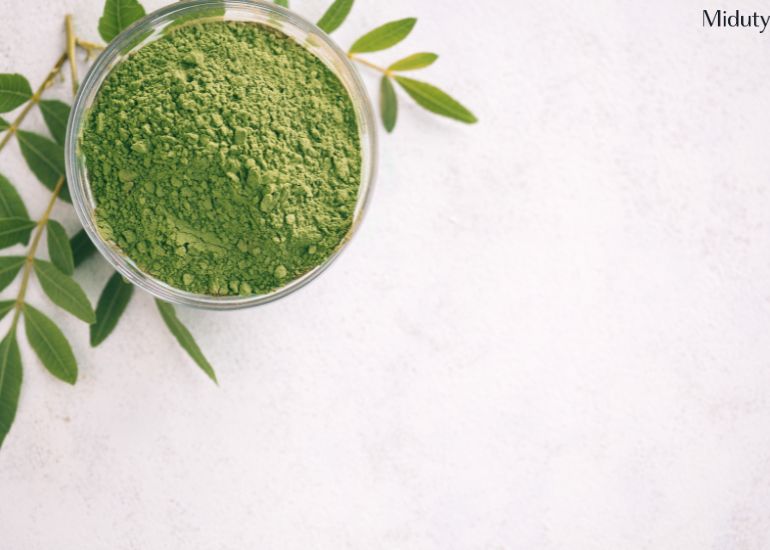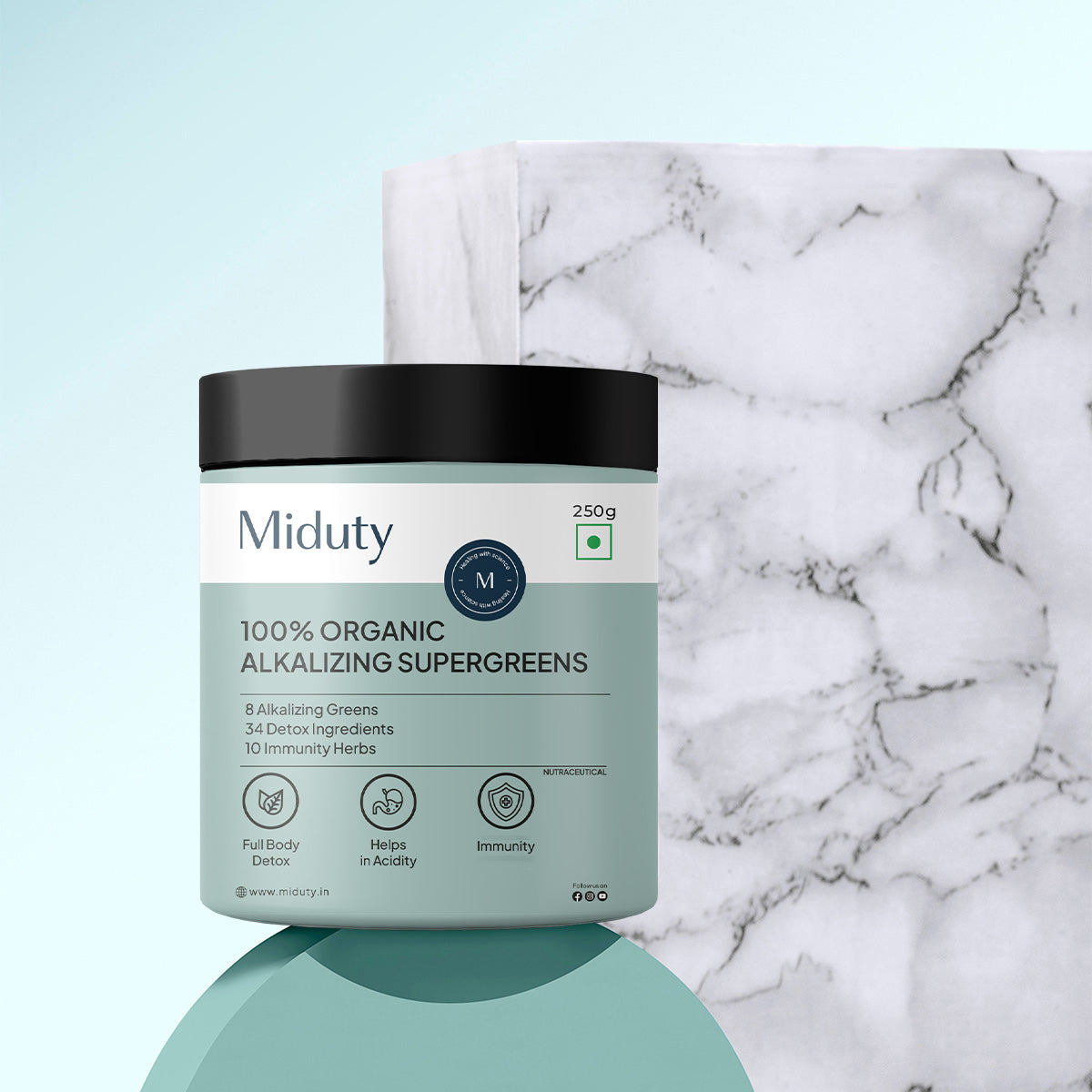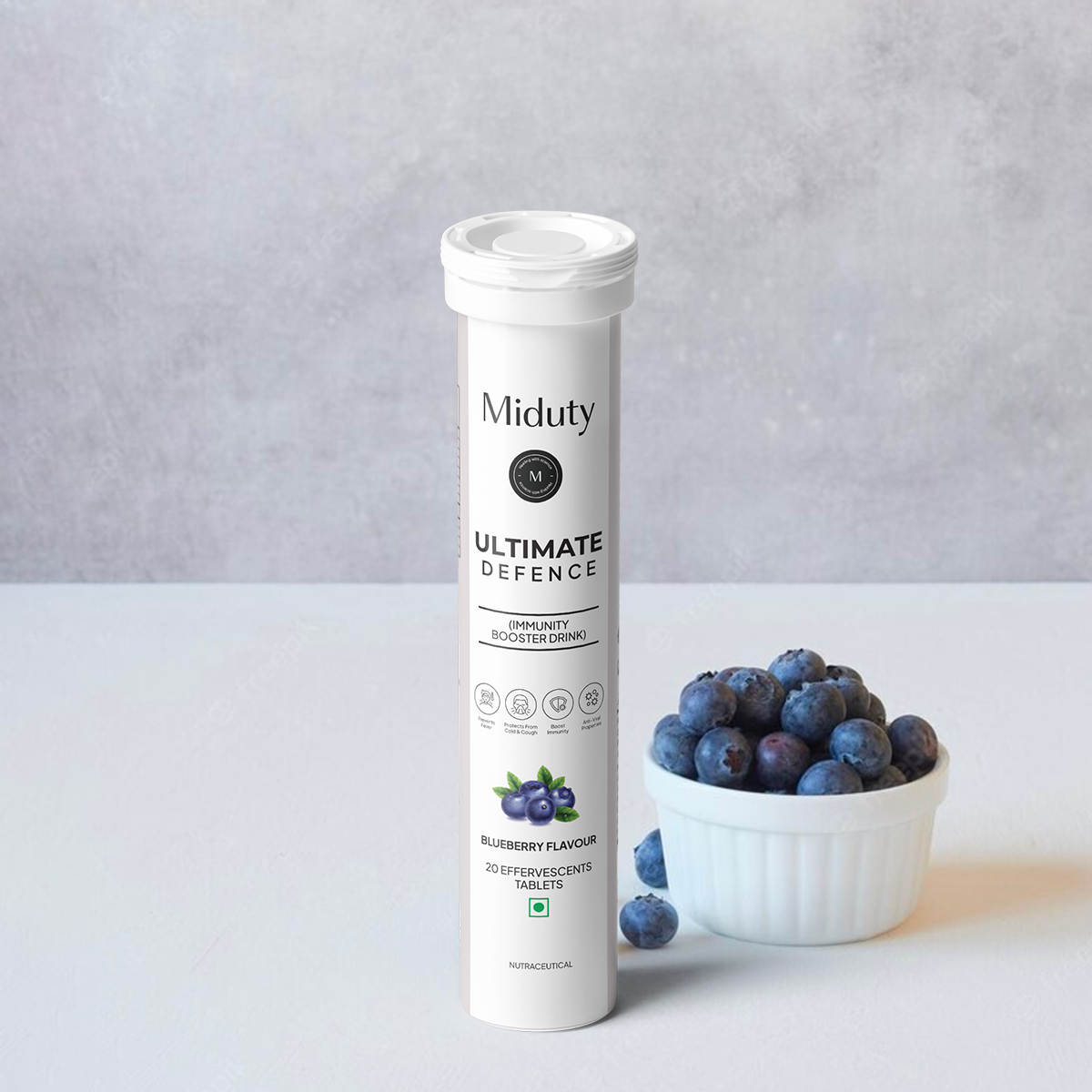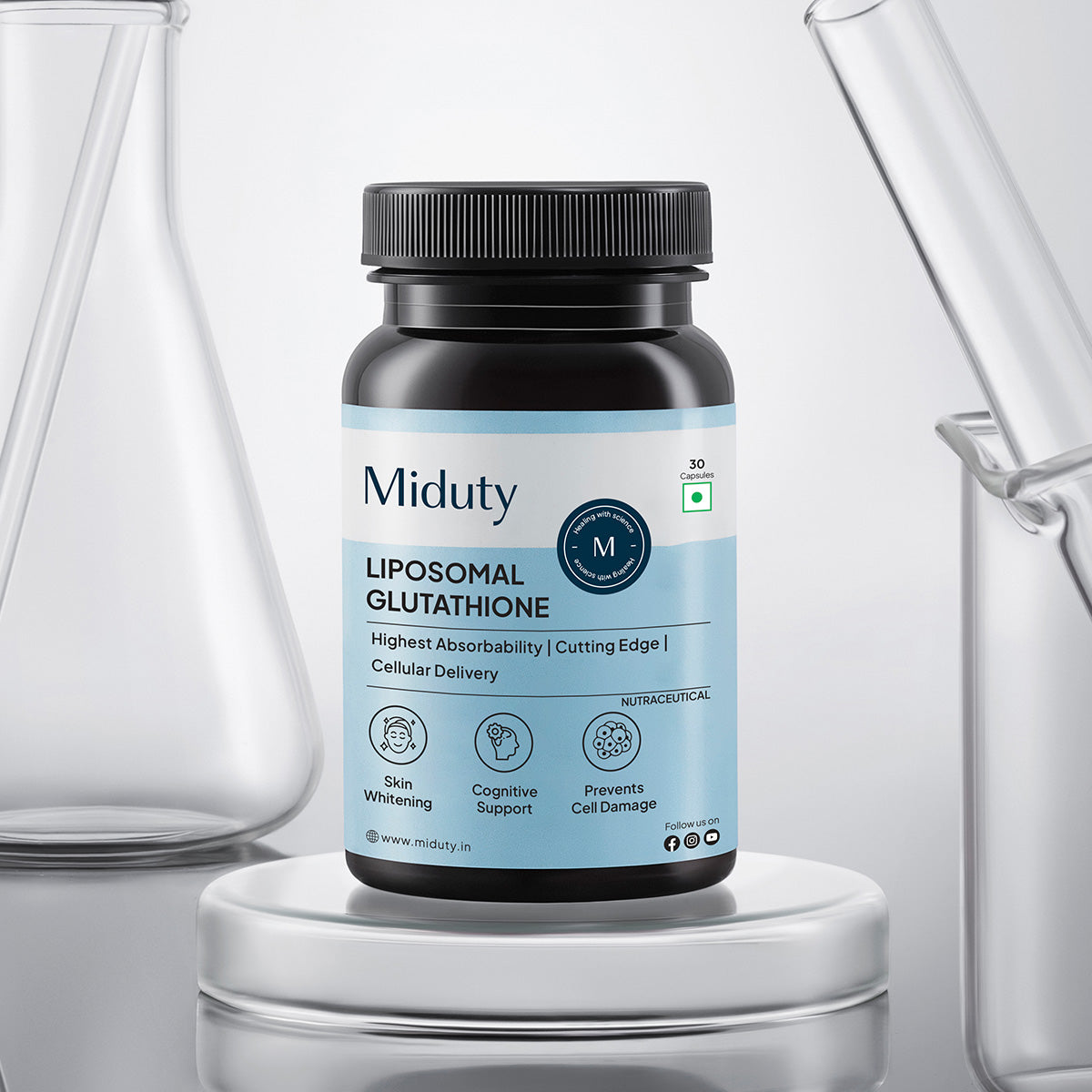
From Vitamins to Antioxidants: Nutritional Breakdown of 1 Teaspoon of Moringa Powder
Moringa powder has been making waves in the health and wellness world and for good reason. Derived from the leaves of the Moringa oleifera tree, also known as the "drumstick tree" or "miracle tree," this green superfood is densely packed with nutrients. Indigenous to parts of Africa and Asia, especially the foothills of the Himalayas, moringa has been used for centuries in traditional medicine for its healing properties.
Today, it's widely consumed in powder form, making it easy to blend into smoothies, sprinkle over dishes, or stir into water or tea. But what makes just one teaspoon of this unassuming green powder so potent? That's exactly what we'll explore. You'll be amazed at the nutrient density and the health benefits packed into such a tiny amount.
Key Takeaways
1. A teaspoon of moringa = a nutrition bomb: Just 2 grams of moringa powder delivers essential vitamins like A, C, iron, and calcium—making it a superfood in a tiny scoop.
2. More than macros: It's the micronutrients that matter. Beyond calories and protein, moringa is rich in beta-carotene, magnesium, potassium, and antioxidants that support overall wellness.
3. Boosts immunity, energy, skin & more: Daily moringa can help strengthen your immune system, fight fatigue, reduce inflammation, and even support glowing skin.
4. Rich in rare plant-based protein and antioxidants: Moringa contains all nine essential amino acids plus unique antioxidants like quercetin and chlorogenic acid for metabolic and heart health.
5. Choose Smart: Opt for moringa combined with wheatgrass, spirulina, or green tea extract for broader benefits like detox, energy, and hormone support.
What Is Moringa Powder?
Moringa powder is made by drying and grinding the leaves of the Moringa oleifera tree. Native to parts of India, Africa, and Southeast Asia, the moringa tree has been used for centuries in traditional medicine systems like Ayurveda.
The powder is now widely consumed in smoothies, teas, and supplements due to its high content of vitamins, minerals, amino acids, and antioxidants.
Nutritional Breakdown of 1 Teaspoon of Moringa Powder
Let's break down the nutritional profile of one teaspoon (approximately 2 grams) of moringa powder. While the exact numbers can vary slightly depending on the brand and source, here's a reliable average:
Moringa may be small in quantity but is incredibly dense in nutrients providing essential vitamins, minerals, plant-based protein, and antioxidants in just a single serving. It's one of the few superfoods that naturally contains all nine essential amino acids, making it especially valuable for vegetarians and vegans.
|
Nutrient |
Amount per 1 tsp (2g) |
% Daily Value (DV) |
|
Calories |
7-10 kcal |
- |
|
Protein |
1 gram |
~2% |
|
Fat |
0.2 grams |
- |
|
Carbohydrates |
1.3 grams |
<1% |
|
Fiber |
0.4 grams |
~1% |
|
Vitamin A |
- |
15% |
|
Vitamin C |
- |
12% |
|
Calcium |
- |
10% |
|
Iron |
- |
15% |
|
Potassium |
- |
8% |
|
Magnesium |
- |
5% |
This means you're getting a solid dose of essential nutrients in a very small serving. For comparison, moringa contains seven times more vitamin C than oranges and four times more calcium than milk per gram. It's no wonder it's hailed as a nutritional powerhouse.
Key Nutrients in Moringa Powder
1. Vitamin A (as Beta-Carotene)
Vitamin A is essential for healthy skin, immunity, and vision. Just one teaspoon of moringa provides about 20–25% of your daily requirement, making it a powerful addition for skin and eye health.
2. Vitamin C
Although not as high as citrus fruits, moringa still contains a fair amount of vitamin C, helping to support immune function, collagen synthesis, and protection from oxidative stress.
3. Calcium
At 40–60 mg per teaspoon, moringa powder offers more calcium per gram than most green vegetables. This helps support strong bones, nerve signaling, and muscle function.
4. Iron
Moringa is particularly valued in vegetarian diets for its plant-based iron content. Iron supports hemoglobin production, oxygen transport, and energy levels.
5. Magnesium
Magnesium plays a role in over 300 enzymatic reactions, including those related to muscle relaxation, blood pressure, and sleep.
6. Potassium
Potassium helps balance fluid levels, regulates blood pressure, and supports nerve transmission. Moringa offers a small but meaningful dose in just a teaspoon.
7. Protein and Amino Acids
Moringa is a rare plant that contains all nine essential amino acids. One teaspoon gives about 0.5–0.7 grams of protein—not much by quantity but rich in quality.
Antioxidants in Moringa: A Hidden Superpower
Moringa powder contains powerful antioxidants such as:
- Quercetin – Supports blood pressure control and reduces inflammation
- Chlorogenic acid – Helps regulate blood sugar
- Beta-carotene – A precursor to Vitamin A
- Polyphenols – Fights oxidative stress and cellular damage
Health Benefits of 1 Teaspoon Daily
Even a single teaspoon of moringa powder daily can offer a wide range of health benefits due to its dense nutrient profile:
1. Boosts Immunity: Moringa is rich in vitamin C, beta-carotene (Vitamin A precursor), zinc, and antioxidants—all essential for strengthening the immune response. These nutrients help the body produce white blood cells, fight infections, and neutralize harmful pathogens.
2. Fights Fatigue and Increases Energy: The combination of iron, magnesium, and B-vitamins supports red blood cell formation and improves oxygen delivery to cells, reducing tiredness. Unlike caffeine, it boosts energy at a cellular level, making you feel more active without crashes.
3. Supports Healthy Skin: With high levels of vitamin A, vitamin C, and antioxidants, moringa helps improve skin tone, reduce pigmentation, and delay signs of aging. These nutrients also assist in collagen production and skin repair processes.
4. Balances Blood Sugar Levels: Compounds like chlorogenic acid and isothiocyanates in moringa may help slow down the release of glucose into the bloodstream, keeping sugar levels stable. This makes it especially beneficial for those managing insulin resistance or type 2 diabetes.
5. Reduces Inflammation: Moringa contains powerful anti-inflammatory phytonutrients like quercetin and flavonoids, which help reduce chronic inflammation linked to conditions like arthritis, obesity, and heart disease. These compounds may block inflammatory enzymes and support tissue healing.
How to Use Moringa Powder?
- Smoothies: Add 1 teaspoon to a fruit smoothie or green juice.
- Teas: Stir into warm water with lemon or ginger.
- Soups or Curries: Mix into dal, sabzi, or soups post-cooking.
- Energy Balls: Combine with nuts, dates, and seeds for a snack.
- Yogurt or Curd: Mix with honey and curd for a probiotic boost.
Morning Comparison with Other Superfoods
|
Nutrient |
Moringa (1tbsp) |
Spinach ( 1 Cup Raw) |
Wheatgrass ( 1 tbsp) |
|
Vitamin A |
20-25% RDA |
56% RDA |
10-15 % RDA |
|
Calcium |
40-60 mg |
30 mg |
10 mg |
|
Iron |
0.5-0.8 mg |
0.8 mg |
0.2 mg |
|
Protein |
0.5-0.7 g |
0.9 g |
0.4 g |
Moringa stands out for its dense nutrition in a small volume, making it ideal for compact supplementation.
Choosing the Best Moringa Supplement
While plain moringa powder is powerful, blends with other supergreens offer even greater benefits. Look for a supplement that combines moringa with wheatgrass, spirulina, green tea extract, or green turmeric. These ingredients work synergistically to support detoxification, boost natural energy, enhance immunity, and fight oxidative stress making each scoop more effective for overall wellness and vitality.
Conclusion
A teaspoon of moringa powder may seem small, but its nutritional impact is powerful. In just 2 grams, you get a blend of essential vitamins, minerals, plant-based protein, and antioxidants all of which support various aspects of health from skin to metabolism.
Whether you're looking to improve your immunity, balance your hormones, or just upgrade your daily nutrition, adding a teaspoon of moringa powder to your routine could be a smart, natural move.
Frequently Asked Questions On Moringa Powder Nutrition -
Q1 - What is the nutritional value of 1 teaspoon of moringa powder?
One teaspoon (approx. 2 grams) of moringa powder contains about 7–10 kcal, 1g protein, 0.2g fat, 1.3g carbohydrates, along with Vitamin A, C, calcium, iron, potassium, and magnesium in notable amounts.
Q2 - What is the benefit of 1 spoon of moringa powder?
Just 1 teaspoon daily may support immunity, skin health, energy levels, hormonal balance, and digestion due to its rich nutrient and antioxidant profile.
Q3 - Is a teaspoon of moringa enough?
Yes, 1 teaspoon (2 grams) is a beneficial daily serving for general wellness and provides a concentrated dose of vitamins, minerals, and antioxidants.
Q4 - What are the 92 nutrients in moringa?
Moringa contains 92 bioactive nutrients, including 46 antioxidants, 36 anti-inflammatory compounds, 18 amino acids (including all 9 essential ones), and key vitamins like A, C, E, and B-complex, as well as minerals like calcium, iron, and magnesium.
Q5 - How many mg are in 1 teaspoon of moringa powder?
One teaspoon of moringa powder is approximately 2,000 mg (2 grams) in weight.
References












